5 ESG Stocks to Buy for Earth Day 2022
We explore five highly rated ESG-friendly stocks that act as standouts in five key environmental areas.


Profit and prosper with the best of Kiplinger's advice on investing, taxes, retirement, personal finance and much more. Delivered daily. Enter your email in the box and click Sign Me Up.
You are now subscribed
Your newsletter sign-up was successful
Want to add more newsletters?

Delivered daily
Kiplinger Today
Profit and prosper with the best of Kiplinger's advice on investing, taxes, retirement, personal finance and much more delivered daily. Smart money moves start here.

Sent five days a week
Kiplinger A Step Ahead
Get practical help to make better financial decisions in your everyday life, from spending to savings on top deals.

Delivered daily
Kiplinger Closing Bell
Get today's biggest financial and investing headlines delivered to your inbox every day the U.S. stock market is open.

Sent twice a week
Kiplinger Adviser Intel
Financial pros across the country share best practices and fresh tactics to preserve and grow your wealth.

Delivered weekly
Kiplinger Tax Tips
Trim your federal and state tax bills with practical tax-planning and tax-cutting strategies.

Sent twice a week
Kiplinger Retirement Tips
Your twice-a-week guide to planning and enjoying a financially secure and richly rewarding retirement

Sent bimonthly.
Kiplinger Adviser Angle
Insights for advisers, wealth managers and other financial professionals.

Sent twice a week
Kiplinger Investing Weekly
Your twice-a-week roundup of promising stocks, funds, companies and industries you should consider, ones you should avoid, and why.

Sent weekly for six weeks
Kiplinger Invest for Retirement
Your step-by-step six-part series on how to invest for retirement, from devising a successful strategy to exactly which investments to choose.
Earth Day – celebrated on April 22 in 2022 – is a time to celebrate environmental wins, especially for investors who focus on environmental, social and governance (ESG) investing. So today, we're going to examine several ESG stocks that act as industry leaders in several key environmental areas.
No company has a perfect ESG profile, just as no company has a perfect balance sheet. In fact, many companies that now lead environmental efforts started out at the back or the middle of the pack. ESG investors can take some credit for many of these glow-ups, filing shareholder proposals on thorny environmental issues, demanding better ESG disclosure and creating an investing milieu that favors sustainability for long-term growth.
But therein lies the rub of ESG investing. This approach focuses on long-term issues such as climate change and biodiversity. Capital markets often revolve around much shorter-term thinking, however, with even quarter-to-quarter earnings changes demanding the utmost scrutiny. Thus, finding ESG stocks that are able to effectively manage both is difficult – but ultimately rewarding to both portfolio and planet.
Here, we look at five ESG-friendly stocks as we head into Earth Day 2022. We have teed up companies that act as standouts in five key environmental areas – climate change, water stewardship, clean transportation, biodiversity and safer chemicals – while also earning high marks from Wall Street equity researchers.
Analysts' recommendations and other data as of April 18, courtesy of S&P Global Market Intelligence and YCharts, unless otherwise noted. S&P surveys analysts' stock calls and scores them on a five-point scale, where 1.0 equals a Strong Buy and 5.0 is a Strong Sell. Stocks are listed by analysts' consensus recommendation, from highest score (worst) to lowest (best).

PepsiCo
- Market value: $235.7 billion
- Dividend yield: 2.5%
- Analysts' consensus recommendation: 2.27 (Buy)
- ESG focus: Water stewardship
As a major packaged food and beverage company, PepsiCo (PEP, $170.91) has an enormous "water footprint" in its agricultural supply chain and in beverage production.
The company took a proactive approach to water risk – reputational, regulatory and physical – by joining business and stakeholder alliances going back to 2008. By 2016, the company had realized $80 million in water efficiency savings at just one U.S. plant. And last year, PepsiCo pledged to become the most water-efficient food and beverage company by 2030, ultimately recharging aquifers with more water than it extracts.
According to a 2021 report by the nonprofit Ceres, PepsiCo is among the top 10 global companies for responsible water stewardship. Sustainalytics rates PEP No. 5 out of 588 food companies for overall sustainability.
That isn't to say PepsiCo doesn't have room for improvement. It does, as do many ESG stocks. PEP, for instance, faces challenges such as its reliance on plastic packaging and consumer preference for healthier food choices.
"We continue to like [PepsiCo] due to its above-average growth profile and beverage/food and snack diversification, which it has benefited from throughout the pandemic" says CFRA analyst Garrett Nelson. "PEP's food and snack exposure has been growing steadily over the past several years, increasing from 48% of total revenue in 2011 to 55% in 2020. PEP has also shown a willingness to grow its portfolio via the acquisition of faster-growing, emerging brands."
PepsiCo also is attractive given its status as a Dividend Aristocrat, boasting nearly half a century's worth of uninterrupted annual dividend hikes. That makes PEP shares popular enough with the Street – heading into this year's Earth Day, the stock has 11 Strong Buy or Buy calls versus nine Holds, two Sells and no Strong Sells.
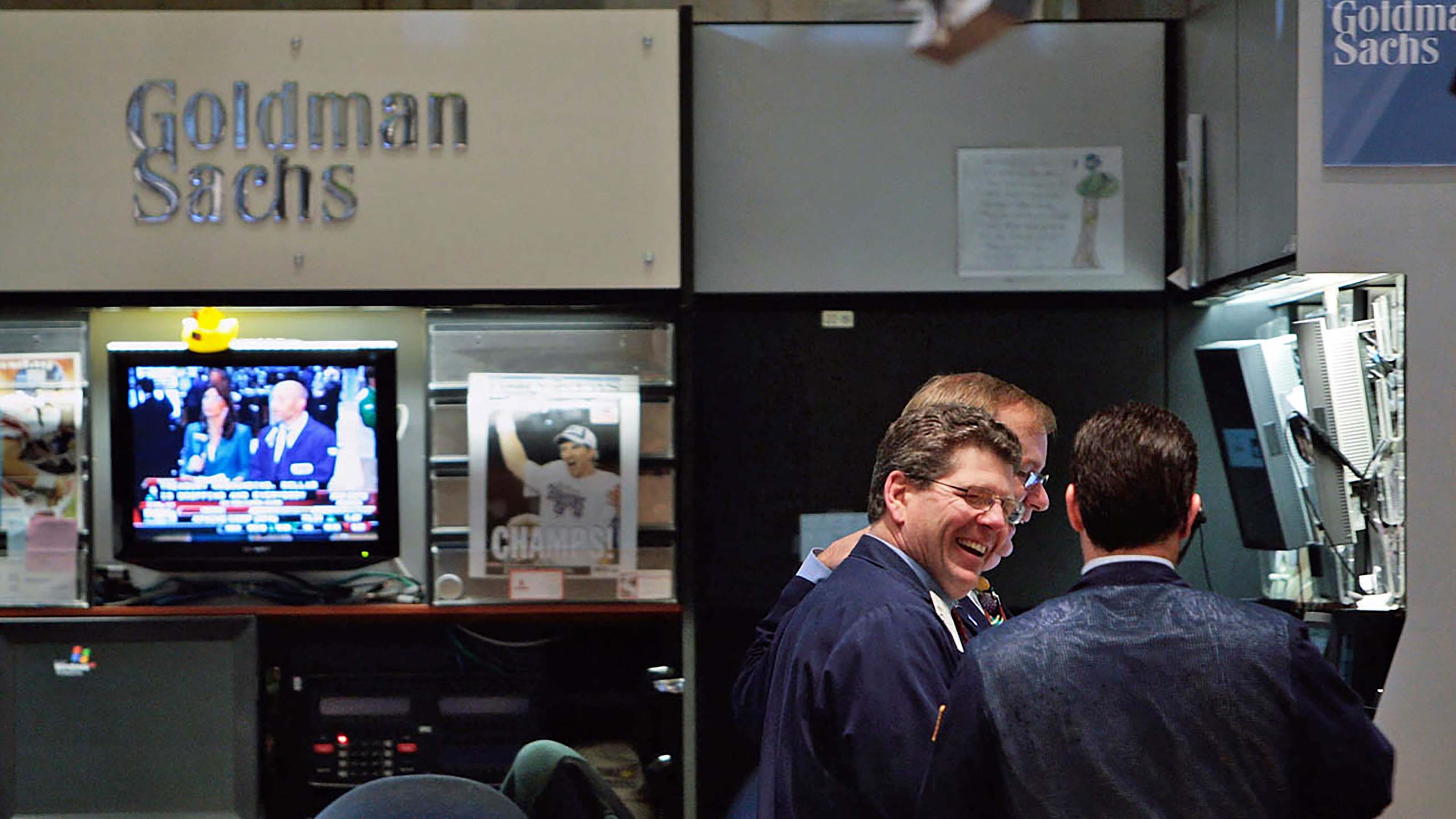
Goldman Sachs
- Market value: $111.5 billion
- Dividend yield: 2.4%
- Analysts' consensus recommendation: 2.11 (Buy)
- ESG focus: Biodiversity
Over the past several years, Goldman Sachs (GS, $331.97) has adopted policies to improve its performance in the area of biodiversity loss and deforestation, such as by investing billions in clean energy, acknowledging the land rights of Indigenous peoples and clarifying how the company intends to achieve net-zero emissions within its portfolios.
These and other efforts have driven a relatively favorable view among ESG evaluators.
The Refinitiv ESG scoring service rates the company sixth out of 373 banking and investment service companies. Meanwhile, the Karner Blue Biodiversity Impact Fund (KAIBX) holds Goldman Sachs in part because of the company's $750 billion commitment to finance climate-related projects by 2030.
"Outside of its normal operations, the company has partnered with the Wildlife Conservation Society to protect, in perpetuity, 735,000 acres of the Karukinka Natural Park in Chile," adds Vicki Benjamin, co-founder and CEO of Karner Blue Capital.
Like many ESG-friendly stocks, Goldman still has work to do. The 2021 Banking on Climate Chaos report found that, while Goldman Sachs was hardly the biggest financier of fossil fuel projects between 2015 and 2020, it did rank 15th out of 60 companies. And after criticism that Goldman Sachs was taking advantage of loopholes to fund drilling in the Arctic, the Sierra Club filed a shareholder proposal in 2022 asking the company to report on its full greenhouse gas footprint within its lending portfolio.
On the financial side, as interest rates continue to head higher, mega-banks such as Goldman will be challenged to grow loan portfolios without sacrificing quality. BMO Research's James Fotheringham (Outperform, equivalent of Buy) notes that the company's strength in transaction banking and consumer finance should help offset these risks.
GS shares hold a consensus Buy rating, according to S&P Global Market Intelligence, on the strength of eight Strong Buys and eight Buys, versus 11 Holds and no sells. A target price of $422.67 implies a 27% return by this time next Earth Day.
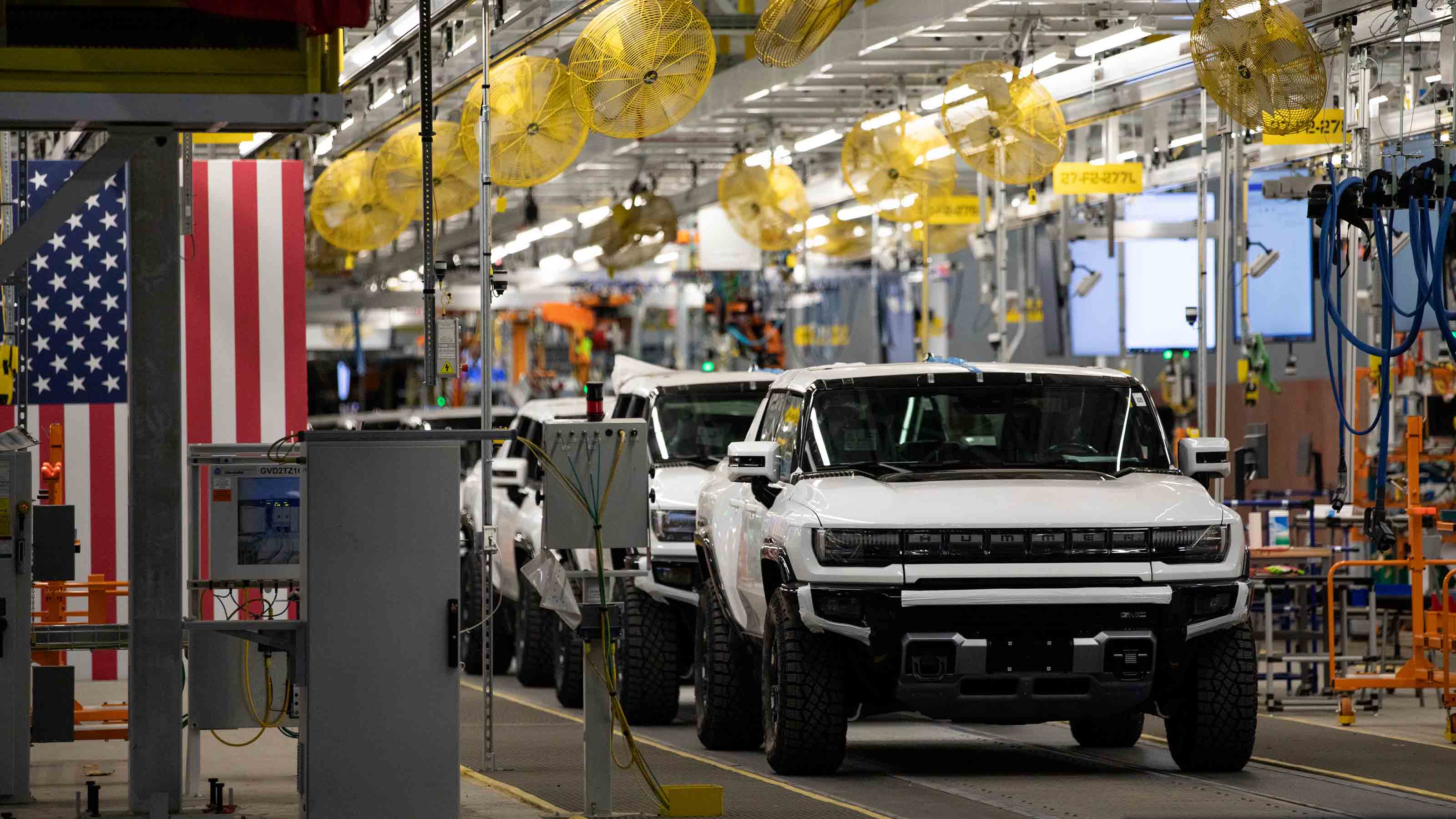
General Motors
- Market value: $59.0 billion
- Dividend yield: N/A
- Analysts' consensus recommendation: 1.65 (Strong Buy)
- ESG focus: Sustainable transportation
The race is on between legacy car stocks like General Motors (GM, $41.01) and pure-play electric vehicle (EV) companies such as Tesla (TSLA) and Rivian Automotive (RIVN) to capture a growing market share of EVs.
For its part, GM has pledged to "eliminate tailpipe emissions from new light-duty vehicles by 2035" and has upped by 75% its commitment to EV and autonomous vehicle development, to $35 billion through 2025.
S&P Global gives General Motors an ESG Score of 78 out of 100 for overall ESG and notes that the automaker has one of the highest scores for environmental performance when compared to industry peers. Although its flagship EV, the Chevy Bolt, has suffered from recalls and vehicle fires, GM is moving on to a superior "Ultium" platform in future vehicles.
Supply-chain disruptions resulted in a 20% slump in 2022 first-quarter sales, but Steve Carlisle, president of GM North America, says "we expect to continue outperforming 2021 production levels, especially in the second half of the year."
The Street seems just about as optimistic about GM shares, with 19 analysts calling it a Strong Buy or Buy, versus just four Holds and zero Sells of any sort. Meanwhile, a $70.09 price target means the pros are calling for more than 70% upside between now and Earth Day 2023.
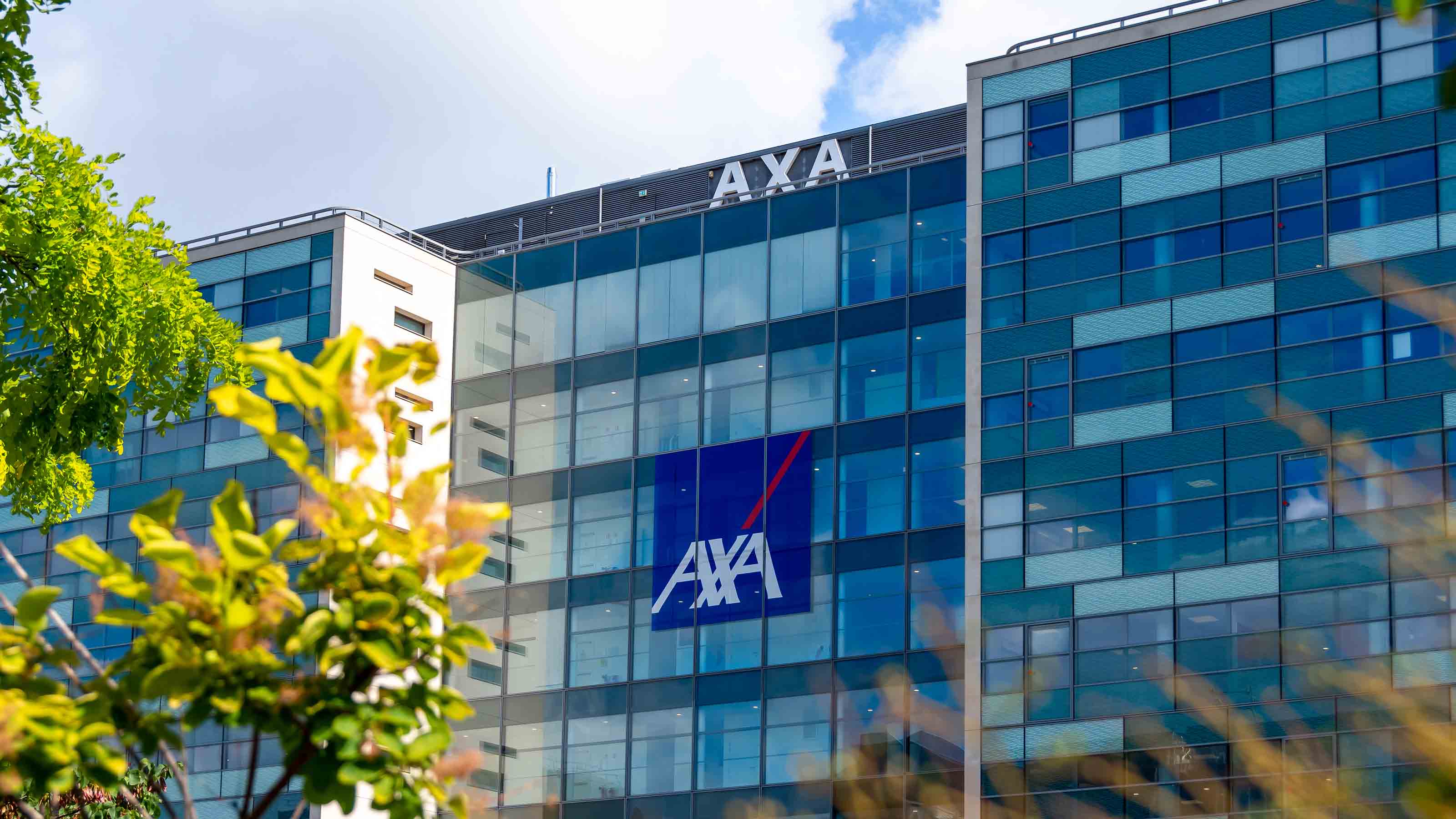
AXA
- Market value: $65.5 billion
- Dividend yield: 6.0%
- Analysts' consensus recommendation: 1.48 (Strong Buy)
- ESG focus: Climate change
Insurance companies such as French multinational AXA (AXAHF, $28.95) are at the front lines of climate change, paying claims after wildfires, floods and storms, and estimating the cost of future risks to people, companies and assets.
In 2005, for instance, Hurricane Katrina surprised the insurance industry with the high cost of climate change losses. And even today, the industry has struggled to keep up with the growing number of annual weather-related disasters; 2021, for instance, was the third-costliest year ever for natural disasters, suffering $343 billion in damages.
AXA, which boasts 95 million clients and a diverse portfolio of products, has responded to these climate challenges more forcefully than almost any other insurance company. AXA shifted its investments away from coal and other high-emitting technologies, earning second place in a 2021 benchmarking report of insurance companies' response to climate change. S&P Global gives the stock a high ESG score of 87, reflecting favor for its climate strategy, commitment to sustainable finance and transparency. And AXA has a number of products to help vulnerable customers handle climate volatility, such as a program that automatically pays claims to smallholder coffee farmers in Nicaragua when rainfall dips below or rises above levels ideal for the coffee crop.
AXA, which trades at an attractive 0.85 times its book value (assets minus liabilities), is among the ESG stocks that currently earn a Strong Buy consensus rating, according to analysts polled by S&P Global Market Intelligence. That's thanks to 19 Strong Buy or Buy calls versus just two Holds and no Sells of any kind.
Among the Buys is CFRA's Jun Zhang Tan, who says "We remain positive on AXA's position in the [Property and Casualty] commercial, which benefits from P&C market hardening and AXA XL's reinsurance portfolio repositioning to reduce exposure to volatile lines. Overall, we expect AXA to deliver strong momentum in P&C commercial in 2022."
And as we head into Earth Day 2022, the pros expect AXAHF shares to trade 23% higher by this time next year.

Levi Strauss
- Market value: $7.5 billion
- Dividend yield: 2.1%
- Analysts' consensus recommendation: 1.38 (Strong Buy)
- ESG focus: Safer chemicals
One lesser-known impact of the fashion industry is its reliance on toxic "forever chemicals" that remain dangerous for years and easily migrate from landfills to water and air. Some of the worst offenders are those that are used in waterproof coatings, called PFCs (perfluorochemicals) and PFAS (per- and polyfluoroalkyl substances).
If this sounds familiar, perhaps you've watched the documentary Dark Waters, starring Mark Ruffalo.
Levi Strauss (LEVI, $18.81) was one of the first companies to eliminate these chemicals from its products, and in 2022 it earned the highest rating in an apparel benchmark conducted by the nonprofit Natural Resources Defense Council (NRDC) for eliminating PFAS from its supply chain. "PFAS have been linked to health problems like cancer, liver damage, weakened immune systems, and developmental problems in children," the NRDC says. Levi also touts its comprehensive program to eliminate toxic chemicals from its products and manufacturing.
While Levi's has been around since 1863, it's the youngest ESG stock on the list; shares hit the New York Stock Exchange following its 2019 initial public offering (IPO). But LEVI has been a roller-coaster ride in that short time. Like many apparel companies, Levi's stock plunged during the early part of the pandemic, then it surged by about 180% from its spring 2020 COVID bottom through May 2021 before simmering to current levels that are only about 10% higher than its $17 IPO price.
Levi Strauss retooled its strategy by strengthening its e-commerce and direct-to-consumer business, and Wall Street tends to agree that the company is emerging from the trough. Of the 13 pros that cover the stock, all have Strong Buy or Buy ratings, giving it an overall Strong Buy rating, according to S&P Global Market Intelligence. Moreover, a $30.62 average price target means that, over the next 12 months or so, those pros see 63% upside in LEVI shares.
"We expect strong earnings-per-share growth and price-to-earnings expansion to drive the stock to our $34 price target over time," says UBS analyst Jay Sole (Buy), who adds that while macro headwinds will likely keep Levi's stock muted in the short term, "we believe LEVI's current stock price represents a very attractive entry point into a leading, high-quality, global apparel franchise at a very reasonable price for those with a long-term investment time horizon."
Profit and prosper with the best of Kiplinger's advice on investing, taxes, retirement, personal finance and much more. Delivered daily. Enter your email in the box and click Sign Me Up.

Ellen writes and edits retirement stories. She joined Kiplinger in 2021 as an investment and personal finance writer, focusing on retirement, credit cards and related topics. She worked in the mutual fund industry for 15 years as a manager and sustainability analyst at Calvert Investments. She earned a master’s from U.C. Berkeley in international relations and Latin America and a B.A. from Haverford College.
-
 Dow Adds 1,206 Points to Top 50,000: Stock Market Today
Dow Adds 1,206 Points to Top 50,000: Stock Market TodayThe S&P 500 and Nasdaq also had strong finishes to a volatile week, with beaten-down tech stocks outperforming.
-
 Ask the Tax Editor: Federal Income Tax Deductions
Ask the Tax Editor: Federal Income Tax DeductionsAsk the Editor In this week's Ask the Editor Q&A, Joy Taylor answers questions on federal income tax deductions
-
 States With No-Fault Car Insurance Laws (and How No-Fault Car Insurance Works)
States With No-Fault Car Insurance Laws (and How No-Fault Car Insurance Works)A breakdown of the confusing rules around no-fault car insurance in every state where it exists.
-
 The 24 Cheapest Places To Retire in the US
The 24 Cheapest Places To Retire in the USWhen you're trying to balance a fixed income with an enjoyable retirement, the cost of living is a crucial factor to consider. Is your city the best?
-
 5 Stocks to Sell or Avoid Now
5 Stocks to Sell or Avoid Nowstocks to sell In a difficult market like this, weak positions can get even weaker. Wall Street analysts believe these five stocks should be near the front of your sell list.
-
 Best Stocks for Rising Interest Rates
Best Stocks for Rising Interest Ratesstocks The Federal Reserve has been aggressive in its rate hiking, and there's a chance it's not done yet. Here are eight of the best stocks for rising interest rates.
-
 The Five Safest Vanguard Funds to Own in a Volatile Market
The Five Safest Vanguard Funds to Own in a Volatile Marketrecession The safest Vanguard funds can help prepare investors for market tumult but without high fees.
-
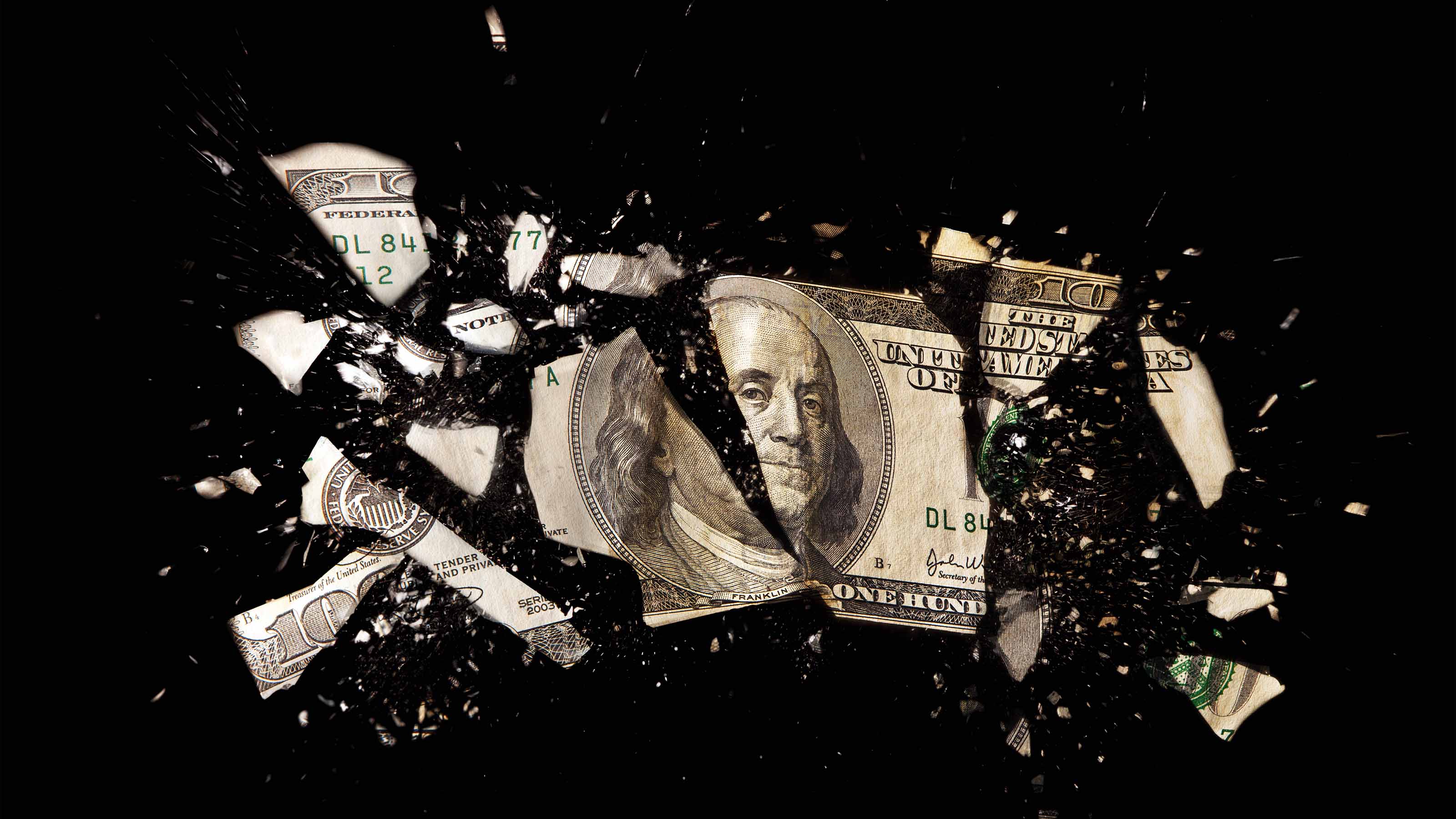 The 5 Best Inflation-Proof Stocks
The 5 Best Inflation-Proof Stocksstocks Higher prices have been a major headache for investors, but these best inflation-proof stocks could help ease the impact.
-
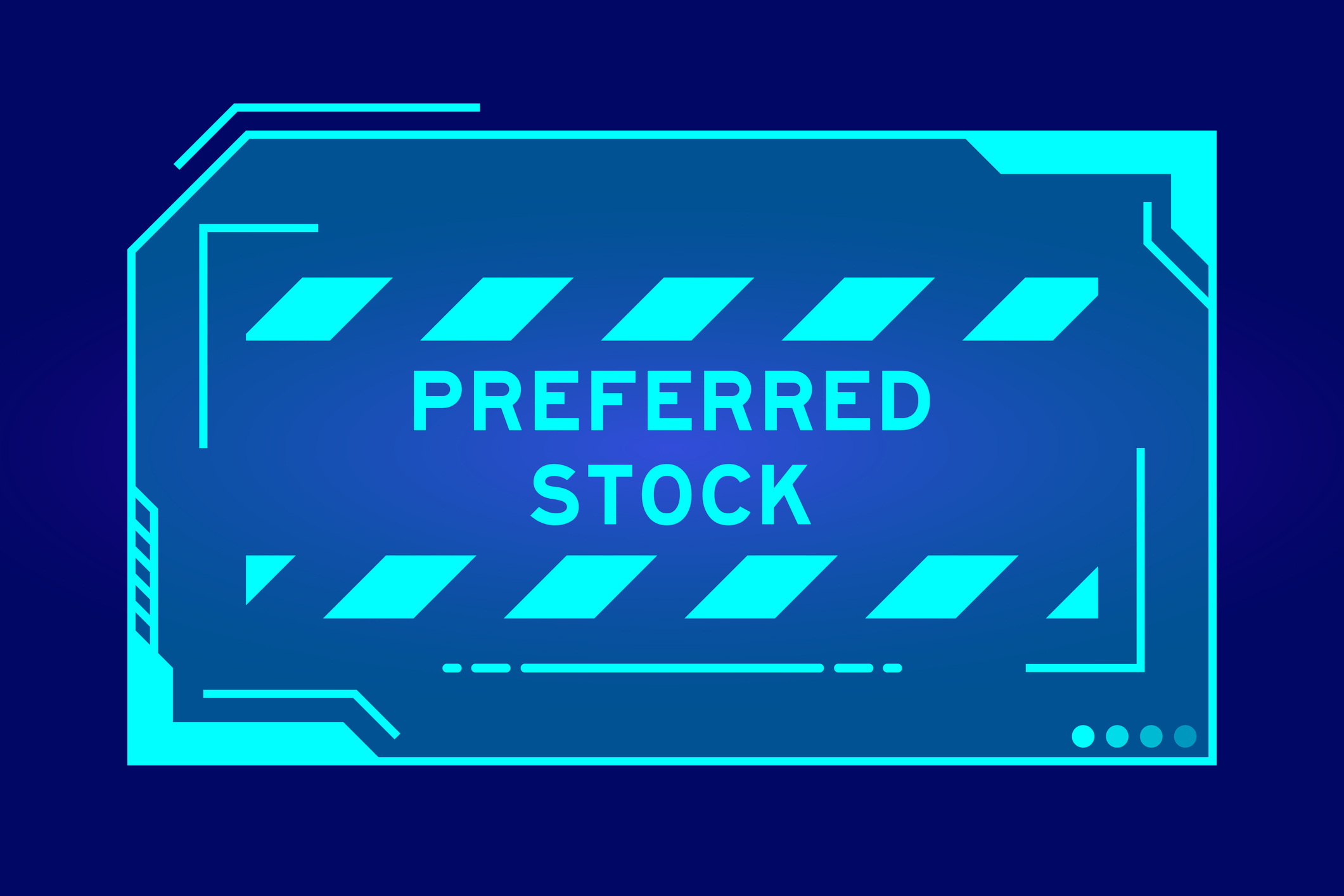 5 of the Best Preferred Stock ETFs for High and Stable Dividends
5 of the Best Preferred Stock ETFs for High and Stable DividendsETFs The best preferred stock ETFs allow you to reduce your risk by investing in baskets of preferred stocks.
-
 What Happens When the Retirement Honeymoon Phase Is Over?
What Happens When the Retirement Honeymoon Phase Is Over?In the early days, all is fun and exciting, but after a while, it may seem to some like they’ve lost as much as they’ve gained. What then?
-
 5 Top-Rated Housing Stocks With Long-Term Growth Potential
5 Top-Rated Housing Stocks With Long-Term Growth Potentialstocks Housing stocks have struggled as a red-hot market cools, but these Buy-rated picks could be worth a closer look.
